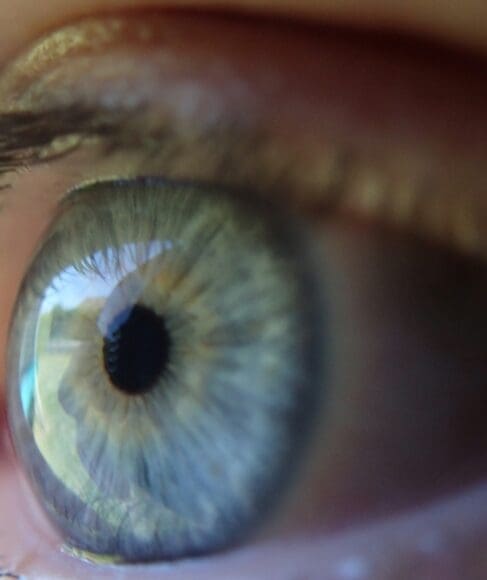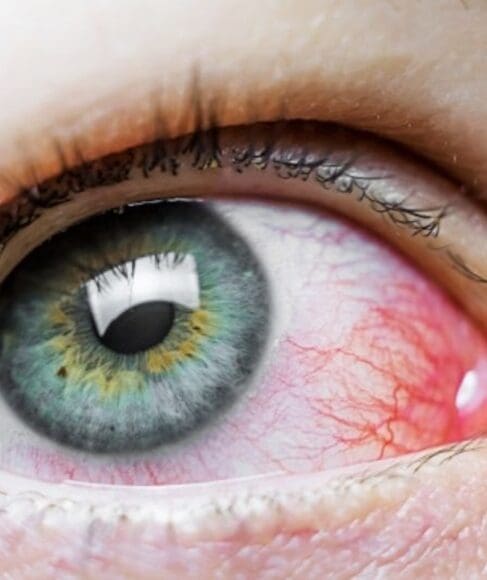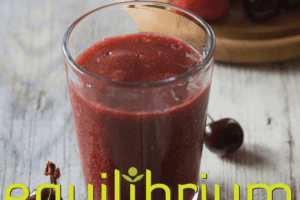Our tears and the importance of our relationship with them.
People have three types of tears: basal, reflex and emotional.
A poor quality of our tears can develop the dry eye disease.
When was the last time you cried? Do you remember why you did it? Without a doubt, our tears have accompanied us throughout our lives and we live with them all the time, which can invite us to think that they are of the utmost importance to us, and they are. A happy ending, a broken heart, a rubbish in the eye or even the "emotion" that gives us cut an onion It can unleash a sea in our eyes, but have you ever wondered what the reason is and why they are so important in our life?
Our tears serve many purposes in our day to day lives, but sometimes we don't even notice them. In fact, a person can produce 56 to 113 liters per year, so it would be easier to realize that we really need them when we don't get them, sound familiar? Here are some facts that perhaps you did not know about tears and that demonstrate their importance in our lives:
Why do we have tears?
They accompany us all the time. The first thing to keep in mind about our tears is that they are a response of our body to maintain lubricated e hydrated our eyes. In fact, these are born from the lacrimal glands, located in our eyelids, and if we do not have them or if they are of poor quality, we will develop the dry eye disease -pain they have around 352 million of people in the world and can suffer it near the 80% of the population in cities like ours - where tears are unable to protect our eyes, either because they evaporate faster than they should or we simply don't have enough of good quality. This disease can be treated with artificial tears o eye drops.
However, our tears go beyond that, did you know we have three types? Thus, it is, they are not all the same and they respond to particular situations, the same ones that we describe in the next point.
Tears for every occasion
It could even be considered pretentious on our part, but it is not really the same type that our body emits to lubricate our ocular surface as the one we have when something is "put" in our eye or the one we spill when our favorite movie or series ends. That is why we have three types:
Basal tears: they are in our eyes all the time to lubricate, nourish and protect the cornea.
Reflex tears: they are formed when we need to clean an irritant such as dust or some rubbish. Those that we spill when we cut onion come in here, thanks to the fact that the vapors given off are harmful to our eyes.
Emotional tears: as its name says, they are produced when we are happy, sad, we are afraid or different emotional states.
Crying is good and we could do it more often. Here we tell you why.
We cry more than we think:
We may not notice it, but people cry a lot. In the United States alone, women cry on average 3.5 times a month on average and men 1.9, while in Chile they do 3.6 y 1.2 times and in Brazil 3.1 y 1.0 respectively.
We ask for help with tears:
Dr. Lauren Bylsma of the University of Pittsburg mentions that perhaps the value of crying goes beyond its physiological effects, such as pain response, and that it really could be related more to crying. social response what causes; In short, it may be that people cry to inform others that we need help and thus receive support from someone. Perhaps this is why crying is so often used to achieve something at any age.
Serves as a self-soothing agent:
A 2014 study by Gracanin, Bylsma and Vingerhoets explains that crying activates the parasympathetic nervous system, which helps us to To relax. Therefore, after crying we could feel without energy and even fall asleep.
Also, our emotional tears release oxytocin y endorphin, chemicals responsible for making us feel good, but also expel stress hormones.
Now that you know a little more about your tears, you will surely love them more for everything they do for you. Do you know if you have healthy tears so that they can fulfill their purposes? Some simple tips that you can follow to take care of them, together with your eyes, are:
- Use the ruler 20/20/20 when you see the screen of your cell phone or your computer for a long time: every 20 minutes turn to see an object 20 feet away (6 meters) for 20 seconds
- A diet rich in Omega-3 improves the quality and quantity of our tears. Wear large sunglasses with 99% -100% UV filter.
It is important that you also carry a Healthy life, To hydrates constantly and go to reviews ophthalmological at least once a year to see how your visual health is.
ABOUT ALCON
Alcon helps people see brilliantly. As a world leader in eye care with a heritage spanning more than seven decades, we offer the broadest portfolio of products to improve sight and improve people's lives. Our eye care and surgical products have touched the lives of more than 260 million people in more than 140 countries each year who live with diseases such as cataracts, glaucoma, retinal diseases, and refractive errors. Our more than 20,000 associates are improving the quality of life through innovative products, partnerships with eye care professionals, and programs that promote access to quality eye care. Learn more at alcon.com.
- Mukamal, R. (2017). Facts about tears. From American Academy of Ophthalmology.
- Craig, Nelson, Azar, Belmonte, Bron et. to the. (2017). TFOS DEWS II Report Executive Summary. By The Ocular Surface.
- Mukamal, R. (2017). Facts about tears. From the American Academy of Ophthalmology. ¿
- Craig, Nelson, Azar, Belmonte, Bron et. to the. (2017). TFOS DEWS II Report Executive Summary. By The Ocular Surface.
- Mukamal, R. (2017). Facts about tears. From American Academy of Ophthalmology.
- Becht, MC, & Vingerhoets, AJJM (2002). Crying and Mood Change: a Cross-Cultural Study. Cognition and Emotion, 16 (1), 87-101
- Mukamal, R. (2017). All about emotional tears. From American Academy of Ophthalmology.
- Gracanin, et. to the. (2014). Is crying a self-shooting behavior. From Frontiers in Psychology.
- Gracanin, et. to the. (2014). Is crying a self-shooting behavior. From Frontiers in Psychology.
Frequently asked questions from our readers:
computer eye drops irritation tears artificial tears contact lenses Dry Eye optometrist
Last modified: April 14, 2024










